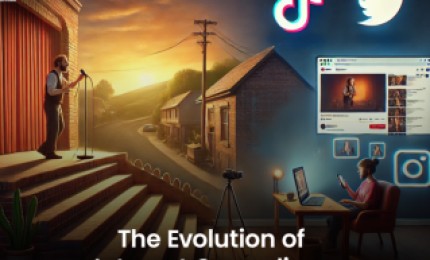The entertainment industry, spanning film, television, music, gaming, and sports, is a complex and diverse landscape where the convergence of different media is increasingly blurring traditional boundaries. All sectors share the ultimate goal of delivering engaging content that can be effectively monetized.
The profitability of entertainment products hinges on multiple factors such as distribution channel strategies, advertising effectiveness, sponsorships, and consumer demand. Artificial Intelligence (AI) is becoming a pivotal asset in this industry due to its capability to simultaneously enhance several key business areas:
This discussion will explore how leading industry players such as Netflix, Disney, Ubisoft, and Spotify are integrating AI to transform their operations. We will delve into the specific AI technologies, trends, and tools that are making waves across various sectors, from enhancing musical compositions to elevating gaming experiences. Join us as we unpack the dynamic role of AI in reshaping the entertainment landscape.
The 2022 IBM Global AI Adoption Index highlights that industries globally are embracing AI primarily for tasks like IT automation, security, marketing, sales, and business intelligence. The media and entertainment sectors are actively following this trend, harnessing AI to drive digital transformation and enhance operational efficiencies. Here’s an in-depth look at the prevalent uses of AI in entertainment and the major companies pioneering these innovations:
These applications illustrate how AI is not just a supplementary technology but a transformative force in the entertainment industry, reshaping how content is created, distributed, and consumed. As AI technology evolves, its integration within the entertainment sector is poised to deepen, driving innovations that benefit both creators and consumers alike.
AI-powered recommendation engines are revolutionising content discovery on platforms like YouTube, Netflix, and Amazon Prime Video by offering highly personalised content suggestions. These systems leverage deep learning algorithms to analyse vast arrays of user data, including viewing habits, search history, and preferences, to tailor recommendations that cater to individual tastes.
These recommendation engines work by gathering data on user interactions and engagement across the platform. They track which shows are watched, which books are browsed, and which songs are replayed, among other activities. This data is then processed to identify patterns and preferences unique to each user. By employing sophisticated machine learning models, these systems can accurately predict and suggest new content that users are likely to find engaging.
Moreover, these systems continuously refine their predictions by incorporating user feedback through mechanisms such as ratings and watch times. This ongoing learning process allows recommendation engines to adapt to changing preferences, ensuring that the suggestions remain relevant and compelling over time. As a result, platforms can enhance user engagement, increase satisfaction, and drive content consumption, making AI-based recommendation engines a critical tool in the digital entertainment landscape.
Netflix leverages advanced AI technology to offer personalised viewing recommendations, enhancing user engagement and satisfaction. The streaming giant's algorithms analyse extensive data on user preferences, viewing patterns, and interaction history to curate content suggestions uniquely suited to each subscriber.
At the core of Netflix's recommendation system is its ability to process and understand a wide array of user inputs. This includes not only what subscribers watch but how they interact with the service, such as the titles they search for, the content they pause, and the ratings they provide. By integrating these insights with machine learning models, Netflix can predict and present films and shows that align closely with individual interests.
Moreover, Netflix has developed sophisticated search functionalities to address the diverse needs of its global audience. The platform tackles the linguistic and technical challenges associated with various languages and input methods—from keyboard entries on mobile devices to voice commands via TV remotes. This adaptive search mechanism ensures that users can easily find specific content, further personalised by AI-driven insights.
By continuously refining its algorithms with new data and feedback, Netflix not only maintains but enhances the relevance of its recommendations and search results, ensuring a continually engaging and customised streaming experience.
Artificial intelligence is increasingly playing a pivotal role in content creation within the entertainment industry, offering innovative solutions that extend from scriptwriting to music composition and visual effects. Companies are harnessing AI technologies to process extensive datasets, enabling the transformation of existing materials into new creative outputs.
In scriptwriting, AI tools like OpenAI's GPT-3 are utilised to craft narratives, generate dialogues, and even develop entire screenplays. These AI systems analyse successful scripts to understand narrative structures and character development, subsequently applying these insights to create compelling and coherent storylines.
The music industry also benefits from AI, where algorithms can create original compositions by learning from vast collections of music. These AI systems recognize patterns, harmonies, and rhythms in existing tracks, allowing them to produce new pieces that maintain artistic integrity and appeal.
Furthermore, in the realm of visual effects, companies like Industrial Light & Magic and Weta Digital are leveraging AI to automate and enhance image processing tasks. AI-driven tools can quickly perform color correction, remove unwanted objects, and even create complex animations that would traditionally require extensive human effort.
These advancements in AI-driven content creation are not only streamlining production processes but also opening up new possibilities for creativity and innovation in the entertainment industry. By effectively integrating AI, companies can produce high-quality content more efficiently, meeting the growing demand for diverse and engaging media experiences.
Ubisoft, a pioneer in the gaming industry, utilizes AI-driven procedural content generation (PCG) to enhance the development of expansive virtual landscapes. This AI technology processes extensive datasets—including maps, textures, and gameplay mechanics—to autonomously generate varied and dynamic environments. Such capability allows Ubisoft to efficiently create vast, realistic game worlds and intricate gameplay elements, significantly reducing the labor traditionally required in content development. This innovative use of AI not only accelerates production processes but also enriches the gaming experience with constantly evolving worlds that maintain high levels of engagement and exploration for players.
Similarly, Hello Games' "No Man’s Sky" showcases another profound application of AI in gaming through its algorithm that generates entire galaxies and planets on a realistic scale. In "No Man’s Sky," the game features a virtually infinite universe where players explore diverse galaxies filled with unique planets, each procedurally generated by AI. These planets come complete with distinct ecosystems, including terrain, weather systems, flora, and fauna. The AI continuously crafts these elements in real-time as players advance through the game, ensuring that each experience is unique and perpetually fresh. This not only challenges the boundaries of traditional gaming but also highlights the potential of AI to create deeply immersive and endlessly variable virtual worlds.
Disney, a leader in animation and a trailblazer in visual effects, has significantly advanced its creative capabilities by integrating AI technology into its production processes. Through strategic acquisitions like Pixar and Industrial Light & Magic (ILM), originally founded by George Lucas, Disney has harnessed AI to refine various aspects of animation and visual effects. AI-driven tools now support Disney animators by streamlining character animation, enhancing motion tracking, and accelerating the rendering process. This technological support not only reduces production times and costs but also allows Disney’s creative teams to innovate further, focusing on delivering exceptionally captivating visual narratives. By leveraging AI, Disney continues to lead in producing groundbreaking and visually spectacular animations that enchant audiences globally.
AI is revolutionising how entertainment companies engage with their audiences and personalise advertising. Utilising Natural Language Processing (NLP), AI analyzes social media trends, comments, and sentiments to understand public opinions and reactions to movies, TV shows, and events. This data-driven insight allows companies to refine their marketing strategies, create targeted advertising campaigns, and interact with viewers in real-time on social platforms.
In advertising, AI's impact is profound, enabling more precise and effective marketing approaches. AI algorithms process vast amounts of historical and consumer data to dynamically improve user engagement and ad relevancy. This machine learning capability, combined with big data analytics, allows marketers to evaluate the impact of their campaigns across various channels and continuously refine their strategies based on robust data analyses.
A prime example of AI in action is Disney+, which employs AI-driven targeted advertising to enhance viewer experience. The platform uses AI to analyze user data, including demographics, preferences, and viewing habits, to segment audiences accurately. AI algorithms then tailor ads to match the specific interests of different viewer groups, ensuring that each ad delivered is relevant and engaging. This not only boosts the effectiveness of advertising campaigns but also improves overall viewer satisfaction by minimizing irrelevant ad exposure.
By leveraging AI, entertainment companies are not only enhancing how they interact with audiences but also setting new standards in personalized and effective advertising.
Sentiment Analysis in the Entertainment Industry: Harnessing AI for Audience Insights
In the realm of entertainment, AI-driven sentiment analysis is a powerful tool for decoding audience emotions from text, such as social media posts, reviews, or articles. This technology offers valuable insights into public opinion, enabling media companies to understand how audiences perceive their content.
Entertainment companies leverage sentiment analysis to monitor and evaluate audience reactions across various media channels. By analyzing comments, reviews, and online discussions, they can detect trends, shifts in sentiment, and overall satisfaction levels. This insight is crucial for adapting content strategies, enhancing viewer engagement, and managing brand reputation online.
For instance, major brands employ sentiment analysis to gauge public response to new shows, movies, or digital content releases. This enables them to identify what resonates with the audience and what doesn’t, allowing for timely adjustments in marketing and content delivery strategies.
Disneyland provides an excellent example of sentiment analysis in action. The theme park utilizes NLP tools to scan and interpret feedback from visitors on social media, review sites, and direct customer surveys. This continuous stream of data allows Disneyland to quickly pinpoint both positive feedback and areas of concern. Immediate understanding of visitor sentiment helps them address issues swiftly, enhance guest experiences, and fine-tune services to meet visitor expectations more accurately.
By implementing sentiment analysis, entertainment entities like Disneyland can actively monitor their reputation, respond to customer feedback promptly, and continuously improve their offerings to better meet the needs of their audience.
Sentiment analysis not only enables Disneyland to gauge overall visitor satisfaction but also to segment its audience based on their sentiments and preferences. By classifying visitors into distinct groups—such as families, thrill-seekers, or Disney aficionados—Disneyland can create more targeted marketing campaigns and customize offers and experiences to appeal to each specific audience segment.
These applications illustrate just a fraction of how AI is revolutionizing the entertainment and media industry. As technology advances, AI continues to transform content creation, distribution, and audience engagement in dynamic ways. Next, we will explore some of the specific tools that are making significant impacts in the media and entertainment sectors.
The transformative power of Artificial Intelligence (AI) in the entertainment industry is reshaping every facet of how content is created, distributed, and consumed. From enhancing scriptwriting processes and streamlining production workflows to personalising viewer experiences and optimising marketing strategies, AI's integration into this sector is proving not just beneficial but revolutionary.
AI-driven tools and technologies are enabling entertainment companies to delve deeper into creative possibilities, reduce operational costs, and engage audiences on a more personal level. Whether it's through advanced recommendation systems that enhance viewer satisfaction, AI-powered content creation that pushes the boundaries of what can be visually and audibly achieved, or sentiment analysis that offers real-time insights into audience perceptions, AI is at the forefront of the industry's evolution.
As we continue to witness rapid advancements in AI technology, its role in the entertainment industry is set to expand even further. This promises a future where entertainment is not only more immersive and accessible but also more in tune with the preferences and needs of a global audience. The ongoing fusion of AI with entertainment is crafting a new narrative in the digital age, one that is characterised by innovation, efficiency, and a deeper connection with audiences worldwide.

15 Ways to Make Money as a Singer: A Complete Guide to Monetizing Your VoiceEarning money as a singer requires more than just talent, it demands creativity, persistence, and a willingness to explore...
Read Blog
When Kunal Kamra's Humor Got Him Into Trouble: A Deep Dive into the Controversies of India's Most Fearless ComedianKunal Kamra Controversy: Laughter, Lawsuits, and the Limits of Free SpeechStand-up...
Read Blog
The Oscar race is always full of drama, but this year? It’s absolute chaos. From shocking controversies to unexpected winners, the battle for Best Picture at the 2024 Academy Awards has taken...
Read Blog
In the ever-changing landscape of entertainment, few transformations have been as dramatic and swift as the rise of internet comedians. What began as a platform for amateur funny videos has evolved...
Read Blog
Introduction: In the competitive world of entertainment and talent, having the right representation can make all the difference in launching and sustaining a successful career. Whether you're...
Read Blog.jpg)
While the world of modelling often dazzles with glitz and glam, it's also critical we discuss its darker shades, pulling the curtain back on some challenging realities. Today, let's embark on...
Read Blog